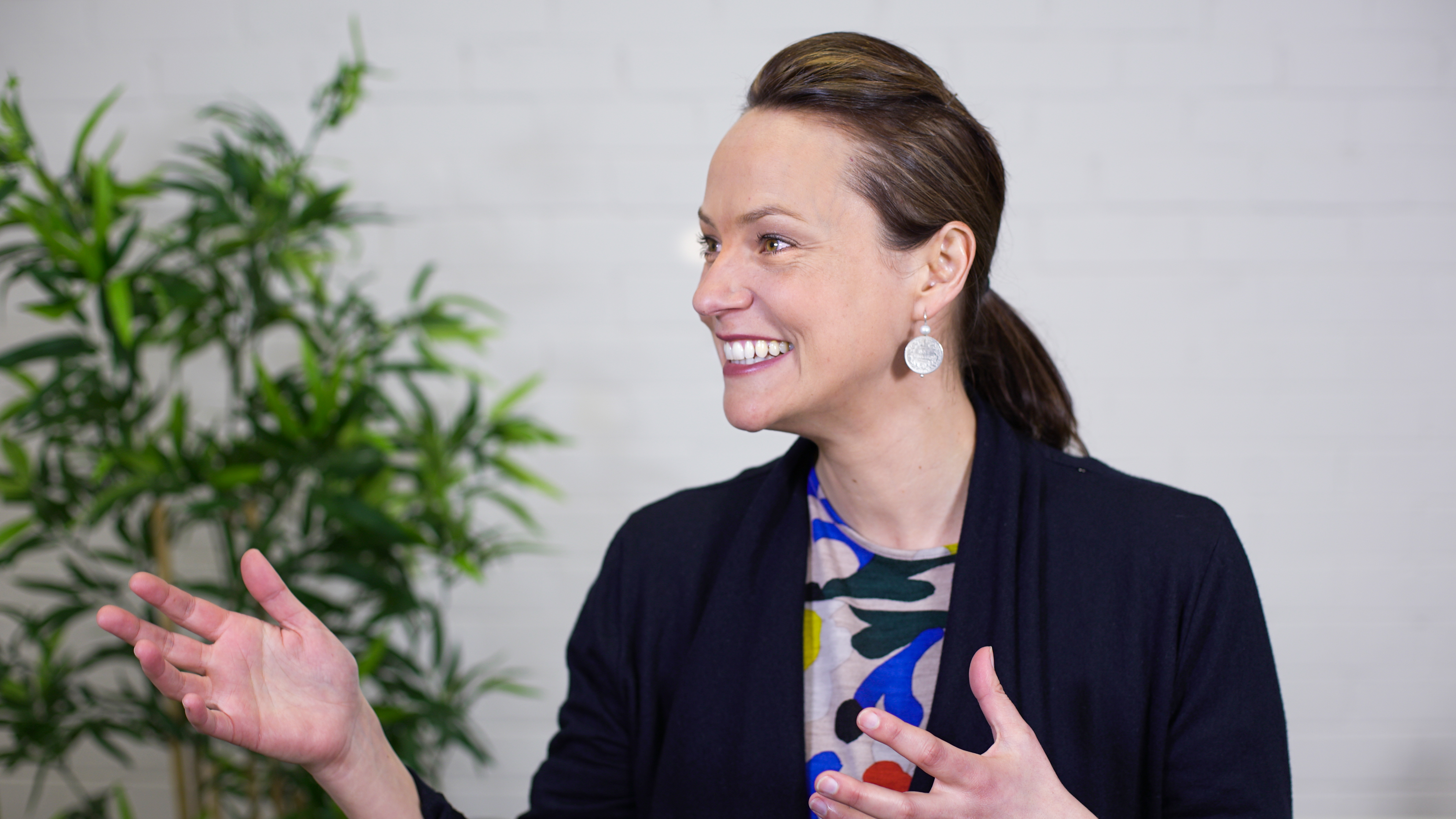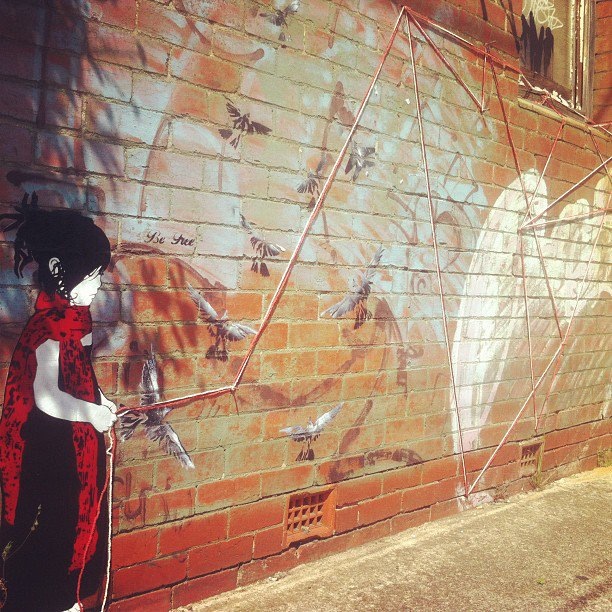Comparing ourselves to other women can steal our joy and make Burn Out feel even worse
Last night I caught up with a dear friend. She was telling me all about how busy and full her life is and in the next breath, described the panic attack she had had only days earlier. Waking up at 3am, unable to breathe and feeling as if she were dying. Now this woman is amazing, strong, funny, smart, a mum and highly respected in her industry. We were at a bar, it wasn’t time for therapy and deep soul searching but the thing she said that got me thinking and really prompted me to write this blog was:
“If she can do it, why can’t I?”
I remember having that thought, several times, just before I burnt out. I remember having that thought, several times, as I lay in bed, completely exhausted feeling not only like a failure because I “couldn’t do it” but feeling like failure because “she could”. That was me, 4 years ago.
Burn out can look a little different for everyone but for most of us, it looks a little something like this:
- Feeling drained, unable to cope or tired for no apparent reason
- Headaches or digestive problems (can lead to weight loss)
- Feeling disengaged at work or just not caring as much as you used to
- Feeling irritable or even angry with your work colleagues/family
- Disrupted sleep
Of course, if these symptoms persist for longer than a couple of weeks, it might be worth going to see your GP and working with them to determine whether you may benefit from a referral to a psychologist or psychotherapist. You could also check in with your organisation’s EAP provider (if they have one) for some additional support. We belong to each other and we do not have to go alone through this tough stuff that can come with being a feeling or sensitive human.
Over the past 4 years I have really deeply enquired into what happened for me when I burnt out, where did I get it so very wrong?
This is what I have learned:
We are all put together differently – we absolutely cannot compare ourselves to another person with any amount of validity. Us humans are so damn complex. We not only have all of our genetics and childhood experiences that have gone into making us into the women we are, there is also a whole lot of other stuff we are not aware of such as epigenetic trauma or emotions or even past life memories. As a result, each of us will have our very own and very unique recipe of wellbeing and success. The trick here is to slow down, listen, and stay in your own lane. We need to stop competing and comparing and just “do us”.
Play to our Strengths – we each have a unique set of strengths that make us excel in the workplace. Now the strengths I am referring to here are not just things we are good at but things that we like and that nourish us as well. Often, we find we may start to head towards burn out if we are playing outside of our strengths too often, doing work that we may excel at but that doesn’t naturally fill us up. You can check out the work of my friend Nikki Smith with whom I worked to learn more about my strengths. Nikki works with the Gallup Strengths Finder and leads her clients through developing a career that is more strengths based.
Connect to and listen to our Values – “The most important thing, is to remember the most important thing” (Suzuki Roshi). So what is that for you? What kind of person do you want to be? How do you want to be living? So few of us have ever had the opportunity to take the time to really reflect on our values. Because of that we often adopt others’ values and try to fit our beautiful selves into them and then wonder why it just doesn’t feel right in our body, heart or minds. Do your own values audit and consider what is your most important thing.
Define Success – As I was coming out of my experience of burn out, I was moaning to a friend “but I just want to have a successful career”, she asked me, “But Liv, what does success look like?” I started reeling off the typical characteristics of success that I thought were universal, you know, “to be well-respected” and “to make good money”, my friend looked at my wryly and she said (she’s also a psychologist) “is that really it? Isn’t it more about helping people in our line of work?” and the words “yes, yes” spilled out of my mouth and I could feel my heart opening and my body softening…she followed up with the next question “do you think you have ever helped anyone?” and my clear answer was “absolutely!” and then the crazy and incredibly freeing realisation dawned on me “MAYBE I HAVE ALREADY HAD A SUCCESSFUL CAREER and I can stop trying so bloody hard now!”. That was a massive “ah ha” moment for me. So my question for you is, what does success look like for YOU? Not your parents or your cool friend or you school mates, you!
Honour our Body – Our body knows what is going on and some argue it has direct access to our soul and our life’s purpose. It is trying desperately, often daily, to give us these clear messages, helping us to get back on track and follow the right path. That squeezing in the heart, that knot in the belly, they are messages to be noted and explored, not sensations to be repressed and simply breathed through or brushed over with meditation. Of course, for some of us, these feelings are remnants of unresolved trauma or something much deeper which may need to be addressed with medication or some form of psychotherapy. These more chronic issues aside, for many of us, we really do need to learn to listen to the whispers of our body and honour her messages.
Put our Own Gas Mask on First – As women, we are trained to put everyone else before ourselves. We rush to work, we rush to pick up, we rush to the supermarket, we even rush in and out of yoga class (if we manage to prioritise the time to go!). Dr Libby Weaver refers to this pattern that is all too familiar as “Rushing Women’s Syndrome” and she purports that this (along with many other factors of course) is contributing to the rise in rates of depression, anxiety and chronic illness in women. Our bodies (that haven’t changed all that much since we were cave women) just can’t keep up. When we are unwell, we are of no help to others. Please, take some time to ask yourself – how can I keep myself well and balanced so I can better contribute to my family, my workplace or my community? Is there a way I can be setting firmer boundaries so others in my life (partners, friends and children included!) are clear of what is OK and what is not OK when it comes to how they treat me?
Review your Environment and Set Boundaries – Getting to burn out, usually takes two, both us and the organisations we work in. So, take some time to consider, are the requests being made of you realistic? Or do you need to set firmer boundaries? Are you working in an organisation that actually aligns to your values or are you being asked (usually covertly) to compromise these? Take some time to truthfully determine whether you are happy in the role/organisation you are in and if not, review your options.
Summary – Questions to Ask Ourselves
- What is my personal recipe for wellbeing? What do I need in my day/week to be full of energy and thriving?
- What are my strengths and how much time am I spending playing to them?
- What are my values? What do I stand for? What kind of person do I want to be? Are my values aligned with the organisation I am working with?
- What is my definition of success?
- What is my body trying to tell me?
- Can I reframe self-care to become important so I can better serve others (rather than a selfish activity)?
- How can I set firmer boundaries, so others are clear when it comes to how I need to be treated and what kind of behaviour is/isn’t OK?
Finally, burn out is absolutely not your fault so please do to put a layer of self-criticism over yourself for already feeling exhausted. Burn out is simply very useful information that perhaps there are some tweaks that need to be made to the way we are living and the way we are valuing ourselves and our time. And please, let’s stop comparing ourselves to our sisters, especially when we are not coping. Comparison of course can be inspiring and can help us to grow and learn if used wisely. It can point us in a direction we may want to go and give us tips when it comes to setting and achieving our career goals. However, very often “it can be the thief of joy” (Theodore Roosevelt) and you know what? there are enough very real joy thieves in our lives, let’s not add another one unnecessarily.


